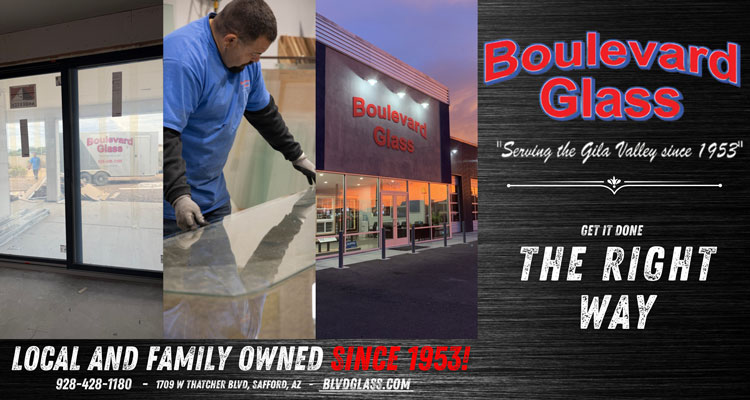Your furnace decides to quit on the coldest February night. Or maybe your AC gives up right when summer hits those brutal 95-degree days. We’ve all been there — frantically searching online, calling random contractors, hoping someone decent can save the day.
But here’s the thing: finding quality HVAC professionals shouldn’t feel like rolling the dice. Pennsylvania’s weather doesn’t mess around. From bone-chilling winters that test every heating system to sweltering summers that push air conditioners to their limits, you need contractors who understand what they’re dealing with. When you’re desperately typing “heating and cooling near me” into your phone at 2 AM, you want to know you’re calling someone who’ll actually solve the problem, not create bigger ones.
The stakes are higher than most people realize. A botched installation can cost thousands in wasted energy. Shoddy repairs often lead to complete system failures. And let’s be honest — Pennsylvania’s climate demands equipment that works when you need it most.
Why Pennsylvania’s Climate Changes Everything
You may wonder why location matters so much for HVAC work. Pennsylvania isn’t exactly known for mild weather. We experience a range of challenges, from humid summers that require your AC to work overtime to winters where heating bills can double overnight.
Smart contractors understand this. They know that a heat pump perfect for North Carolina might struggle through a Pittsburgh winter. They’ve seen how humidity in Philadelphia affects indoor air quality differently than the drier conditions out west. Experience with local weather patterns isn’t just nice to have — it’s essential.
The best technicians I’ve worked with can look at a home and immediately spot Pennsylvania-specific challenges. Foundation issues from freeze-thaw cycles. Ductwork problems are common in older East Coast homes. Insulation gaps that matter more here than in milder climates.
Certification and Licensing: Your First Line of Defense
Let me explain something that might save you serious headaches down the road. Pennsylvania requires specific licensing for HVAC work, and there’s a good reason for that. Refrigerant handling, electrical connections, gas line work — these aren’t DIY projects.
Every legitimate contractor should carry a current Pennsylvania license. No exceptions. But don’t stop there. Look for NATE certification too. That’s North American Technician Excellence, and it means the technician actually passed rigorous testing on HVAC systems. It’s voluntary, which makes it even more meaningful when someone has it.
EPA Section 608 certification is another must-have. Anyone touching refrigerants needs this by federal law. If they can’t show you these credentials immediately, walk away. Seriously.
Here’s what I learned after two decades in this business: the best contractors are proud of their certifications. They’ll show you without being asked. The sketchy ones get defensive or make excuses.
Experience That Actually Matters
Years in business tell part of the story, but not the whole story. I’ve seen contractors with decades of experience who still make rookie mistakes. I’ve also worked with newer companies run by former employees of established firms who really know their stuff.
What you’re really looking for is relevant experience. Has this contractor worked on systems like yours? Do they understand homes built in your era? A company that specializes in new construction might struggle with a 1950s home’s quirky ductwork. Someone who only does residential work might not grasp commercial system complexities.
Customer reviews matter, but read them carefully. Five-star reviews from three months ago don’t tell you much about long-term reliability. Look for patterns in feedback. Do customers mention punctuality? Problem-solving skills? Fair pricing? Those details reveal more than generic “great service” comments.
Professional affiliations can be telling, too. Better Business Bureau membership. Local trade organization involvement. Energy Star partnerships. These connections suggest a contractor cares about reputation and stays current with industry standards.
Service Range: More Than Just Installation
Here’s something that catches many homeowners off guard: not every HVAC company does everything well. Some excel at installations but struggle with complex repairs. Others handle maintenance beautifully but aren’t equipped for emergency calls.
The contractors I respect most can handle the full spectrum. New system installations, yes. But also emergency repairs, routine maintenance, air quality improvements, and ductwork modifications. When your system breaks down, you want one phone number that solves the problem, not a runaround between different specialists.
Specialization within the field matters too. Heat pump expertise. High-efficiency system knowledge. Smart thermostat integration. Zoning system installation. The HVAC industry has become increasingly complex, and the best contractors have kept pace.
Emergency Response: When Minutes Count
Equipment failures don’t follow business hours. Your furnace won’t wait until Monday morning to break down, and that’s when you discover what kind of contractor you’re really dealing with.
Real emergency service means more than just answering the phone. It’s having technicians available. Parts in stock. Diagnostic equipment is ready to roll. I’ve seen too many companies advertise “24/7 service” but then tell customers they’ll have to wait until tomorrow for actual repairs.
Response time matters enormously in Pennsylvania. Winter heating emergencies can become dangerous fast, especially for elderly residents or families with young children. Summer cooling failures create health risks during heat waves. When someone promises same-day service, find out what that actually means.
The best contractors I know keep emergency technicians on rotation. They stock common parts for popular equipment brands. They’ve built relationships with suppliers for after-hours parts availability. These aren’t luxuries — they’re necessities for serious HVAC companies.
Transparent Pricing: No Surprises, No Games
Nothing ruins a contractor relationship faster than surprise charges and hidden fees. Professional HVAC companies provide detailed, written estimates that break down labor, materials, permits, and any additional costs.
Verbal quotes are worthless. Seriously. Get everything in writing, including equipment model numbers, warranty information, and project timelines. Good contractors welcome this level of detail because it protects everyone involved.
Watch out for estimates that seem too good to be true — they usually are. Quality equipment costs what it costs. Skilled labor has value. When someone’s pricing is dramatically lower than other bids, they’re either cutting corners somewhere or planning to hit you with extras later.
Service agreements and maintenance contracts should be crystal clear, too. What’s included? How often do they visit? What happens if equipment fails between visits? The fine print matters more than you might expect.
Red Flags That Should Send You Running
Let me share some warning signs I’ve learned to spot immediately. Door-to-door sales tactics are a huge red flag. Legitimate HVAC contractors don’t need to cold-call neighborhoods or show up uninvited.
Pressure for immediate decisions is another problem. “Sign today or lose this price” usually means you’re about to get ripped off. Quality contractors understand that HVAC investments require thought and comparison shopping.
Contractors who can’t or won’t provide local references should raise alarms. Anyone doing good work has satisfied customers willing to share their experiences. If they’re evasive about references, there’s probably a reason.
Unlicensed or uninsured contractors represent a massive liability. Your homeowner’s insurance won’t cover damage caused by unlicensed work. Workers’ compensation issues become your problem if someone gets hurt on your property. Never, ever hire contractors who can’t prove proper insurance coverage.
Cash-only payment demands are another major warning sign. Professional contractors accept checks and credit cards. They provide proper invoicing and documentation. Cash-only operations often mean they’re avoiding taxes, licensing requirements, or other legal obligations.
Making the Smart Choice
Sounds obvious? Maybe. But it works: the best HVAC contractors earn their reputation through consistent, reliable service over time. They don’t need flashy marketing or high-pressure sales tactics because satisfied customers do their advertising for them.
Start your search before you need emergency repairs. Research local contractors when your system is working fine. Get to know their reputations. Collect contact information. This preparation saves crucial time when equipment actually fails.
Don’t make price your only consideration. The cheapest bid often becomes the most expensive mistake. Focus on value instead: proper licensing, quality equipment, reliable service, and fair pricing for work that’s done right the first time.
Pennsylvania’s climate demands HVAC systems that perform reliably year-round. The contractors you choose should understand this reality and have the skills, experience, and commitment to keep your family comfortable regardless of what Mother Nature throws at us.
Quick Reference Checklist
Use this checklist when evaluating HVAC contractors in your area:
Essential Credentials:
- ✓ Pennsylvania state licensing (verify online)
- ✓ NATE certification
- ✓ EPA Section 608 certification
- ✓ Current liability insurance (minimum $1 million)
- ✓ Workers’ compensation coverage
Experience Indicators:
- ✓ Established local presence (3+ years minimum)
- ✓ Positive customer reviews across multiple platforms
- ✓ Professional affiliations (BBB, trade organizations)
- ✓ Manufacturer certifications for major brands
Service Quality Markers:
- ✓ Written estimates with detailed breakdowns
- ✓ On-site evaluation before pricing
- ✓ 24/7 emergency availability
- ✓ Comprehensive service offerings
- ✓ Clear warranty and service agreement terms
Warning Signs to Avoid:
- ✗ Door-to-door sales approaches
- ✗ Pressure for immediate decisions
- ✗ Verbal-only quotes or estimates
- ✗ Significantly lower pricing than competitors
- ✗ Reluctance to provide references
- ✗ No licensing or insurance documentation
Finding the right heating and cooling professional takes effort, but Pennsylvania’s demanding climate makes this research time well spent. Your comfort, safety, and energy costs depend on making the smart choice from the start.










